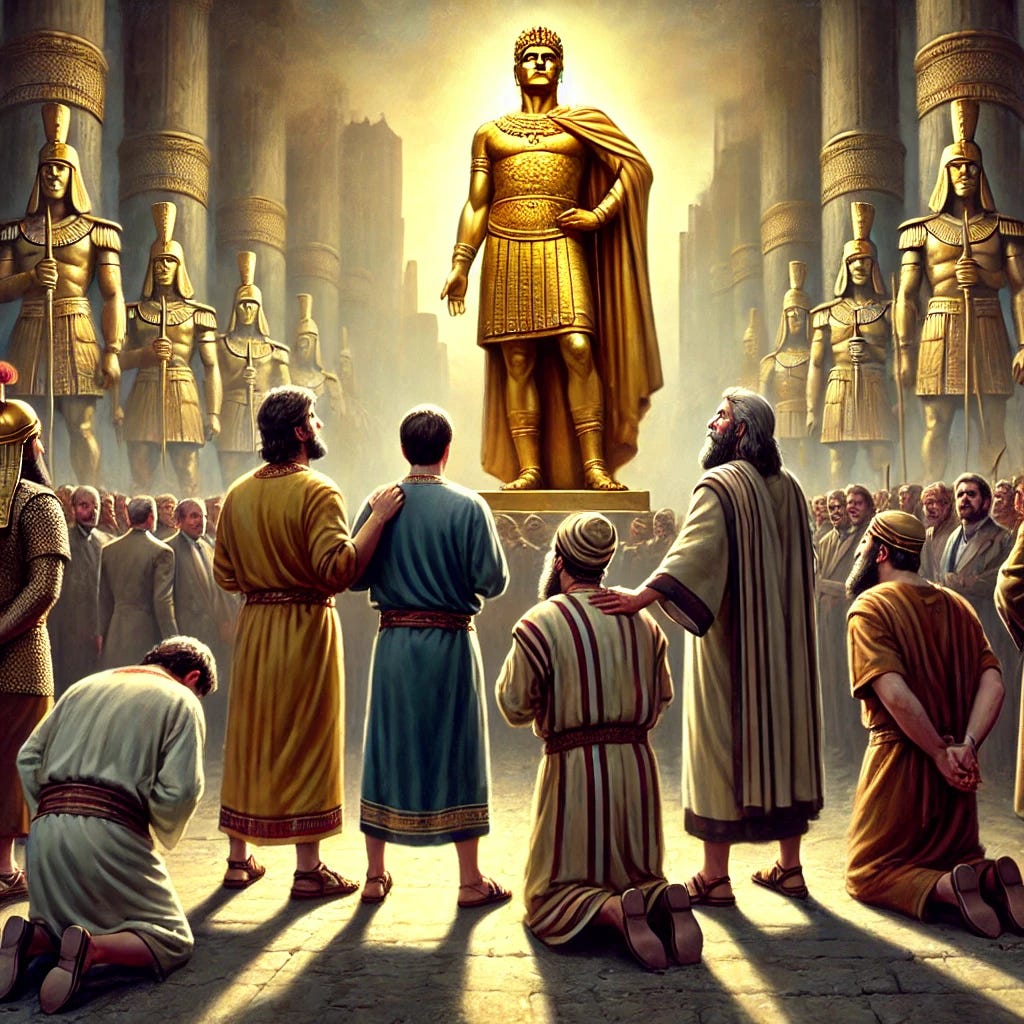If you oppose DEI, you’re a racist. You’re against inclusion. You’re a fascist.
At least, that’s what the supporters of DEI want you to believe. They rely on rhetorical intimidation, not reasoned argument. And the moment you see through their insults, it becomes clear: they can’t defend their position logically. That’s why it’s crucial to have a precise and focused argument against DEI—not only to dismantle their claims but to show why DEI is not just illogical but harmful.
DEI Uses Positive Language to Mask Discrimination
On the surface, who could oppose diversity, equity, and inclusion? These are neutral or even positive words. But in DEI, they are redefined to justify discrimination. We live in a diverse country, and the DEI proponent takes this fact and twists it into an accusation: If you oppose DEI, you must oppose diversity itself. This is a textbook example of the motte-and-bailey fallacy—using a vague, defensible claim to shield a more radical and indefensible position.
The problem is not diversity in itself. The problem is the DEI movement’s insistence that diversity is an end in itself. How often have you heard the phrase Diversity is our strength? It’s at best a half-truth.
Diversity is only a strength if there is a unifying purpose. E pluribus unum—“Out of many, one”—expresses this idea. Diversity can be beneficial when different parts contribute to a shared good. But today’s DEI movement has no one. It has no unifying vision beyond vague commitments to “social justice,” the avoidance of suffering, or the indulgence of pleasure. It is not building anything. It is merely deconstructing.
The Reality Behind “Equity”
When DEI proponents speak of “equity,” they don’t mean fairness or equal opportunity. They mean equal outcomes—a demand that every group achieve identical success rates in every field. If there is any statistical disparity in income or representation between racial groups or between men and women, they conclude that the system must be unjust and must be forcibly corrected.
But this ignores a fundamental truth: people make different choices about their lives. Identical outcomes are only possible if you strip away freedom of choice and impose top-down control. In reality, the United States already has strong laws ensuring that people cannot be paid differently for the same work due to race or sex. The DEI movement refuses to accept this. Since disparities persist, they assume the entire system is racist or patriarchal.
This is where DEI reveals its true nature. It is not about fairness. It is about power.
The Double Standard in DEI
After working with people who hold these views, I’ve noticed a clear pattern: their so-called “anti-racism” often masks deep racial hostility—particularly against white men. If you point out that white men are now underrepresented in state universities, they are unmoved. Why? Because they believe white men need to be held back so that others can succeed.
DEI is not about lifting people up; it is about bringing others down. One colleague angrily wrote here on substack that it is about time white men were brought down.
The Truth About “Inclusion”
“Inclusion” is everywhere on Arizona State University’s web pages and promotional literature. ASU’s charter proudly declares that it wants to be known for who it includes rather than who it excludes. At first glance, this might seem like a simple rejection of the Ivy League model—where elite universities admit only a fraction of their applicants. But that interpretation is misleading.
Elite schools do not reject students based on race or sex. They reject students because they have limited space. ASU, by contrast, solves that problem by expanding its physical campuses and offering vast online programs.
But more importantly, ASU—like all state universities—has always been inclusive. It is constitutionally required to accept all Arizona students who meet minimal requirements. ASU did not suddenly become an “inclusive” institution ten years ago when it adopted its new charter. It always has been. And if ASU or any public university ever did reject students based on race or sex, it would be in direct violation of state and federal anti-discrimination laws.
So what does “inclusion” actually mean in the context of DEI?
Inclusion Means Unequal Treatment
At ASU and other universities, “inclusion” does not mean providing equal access to education. It means giving extra resources—scholarships, special programs, hiring preferences—to those deemed underrepresented, marginalized, or oppressed.
And here’s the circular logic at play: DEI defines underrepresentation using its own flawed definition of “equity.” If a group has different outcomes, it is automatically declared underrepresented. But these disparities are not based on a neutral statistical analysis. If they were, DEI advocates would have to acknowledge that white men are currently underrepresented in higher education.
But that’s not how it works. Instead, DEI uses “inclusion” to justify redistributing resources to the groups it has already decided are owed more—regardless of what the actual numbers say. In doing so, it openly violates state and federal anti-discrimination laws, even without the need for new policies under Trump's second term.
“Inclusion” in the DEI framework is not a factual statement about fairness. It is a political value statement about who deserves more and who must be held back.
And that is why DEI, when stripped of its buzzwords, is not about diversity, fairness, or equal opportunity. It is about power.
Why DEI is Called Social Justice
At its core, DEI is simply another name for social justice. And the logic behind social justice is clear:
1. The entire system is racist and sexist—rigged in favor of white, Christian, cisgendered men.
2. The proof? Different outcomes between groups.
3. The solution? Take from those with “privilege” (white male Christians) and redistribute to those labeled as “underrepresented.”
This is the driving force behind DEI policies, and it is why DEI is not just a bureaucratic initiative—it is an ideological movement rooted in a particular worldview.
The Liberal Christian Justification for DEI
Many liberal Christians have embraced this ideology, arguing that Christianity itself requires white conservative Christian men to participate in this redistribution. They claim that this is the lesson of the Good Samaritan—that to be a true Christian, one must willingly surrender resources and influence for the sake of social justice.
This is a fundamental misreading of the parable.
The Good Samaritan is not about a government forcibly taking from one group to give to another. It is about individual responsibility—what a person should do when confronted with an immediate tragedy. It is not a lesson about systemic injustice or historical grievances.
Every Christian is free to help their neighbor as they see fit without government intervention. But it is a distortion of Scripture to claim that Jesus was teaching about government policy or that this parable somehow justifies a system designed to “get even” for the past. Jesus completely reverses that “get even for the past” reading by having a Samarian help a Jew.
If anything, today’s liberal Christian—who delegates justice to government institutions and demands systemic solutions instead of personal responsibility—more closely resembles the priest and the Levite in the parable. They saw a man suffering and did nothing, assuming that the system would take care of it.
The Injustice of Social Justice
In the end, the DEI version of social justice is not justice at all. It is a personal values judgment masquerading as an objective truth. It is about power, resentment, and redistribution—not fairness or equal opportunity.
And it is fundamentally illogical.
Justice, rightly understood, is about giving each their due—not about enforcing equal outcomes or taking from some to elevate others based on past grievances. True justice does not seek to “get even.” It seeks what is right.
DEI and social justice fail this test. And that is why they must be opposed.
The Social Gospel and the Misuse of Christianity
Over the past 25 years, I have worked with many merely-secular professors. While I am speaking in generalities here, I can say with confidence that what I am about to describe represents at least 95% of cases–in keeping with the statistics about how liberals outnumber conservatives. Some of these professors are openly godless, but a few identify as very liberal Christians. And among those who call themselves Christians, I have consistently seen a deep commitment to what is often called the social gospel—the idea that the primary role of Christianity is to use the government to alleviate material suffering in this life.
This is directly tied to their misreading of the Good Samaritan. As I discussed earlier, they believe this parable teaches that Christians must support policies that forcibly redistribute resources in the name of justice. For them, faith is less about individual virtue, repentance, or salvation and more about systemic reform—particularly through the government.
This is why so many self-identified Christian academics see no contradiction between their faith and their advocacy for DEI policies. They sincerely believe that Christianity is about overcoming inequality through state-enforced redistribution. To them, DEI is not a secular ideology in conflict with Christianity—it is Christianity, properly understood. They have also believed many lies about the past and how social problems of today are the result of specifically white men.
The Consequence of This False Gospel
This is a fundamental error. Christianity is not a tyrannical political program. It does not teach that the government is the mechanism for redeeming the world. It teaches personal responsibility, repentance, and faith in Christ—not the redistribution of wealth and power as a means of social salvation.
The social gospel is not the gospel. It is a corruption of it. It replaces the kingdom of God with the kingdom of man. It focuses on material suffering while leaving spiritual death and alienation from God untouched. And in doing so, it opens the door for DEI and similar ideologies to masquerade as Christian ethics when they are, in fact, entirely foreign to biblical teaching.
The problem is not just that DEI is flawed. It is that it replaces true justice with an ideology of resentment, coercion, and false virtue. And as long as Christian academics continue to baptize DEI in the language of the gospel, this deception will persist.
That is why this argument matters. DEI is not just a misguided policy. It is a direct assault on the truth. And truth matters.
The Hatred Beneath the Rhetoric
Many of those I’ve met who champion DEI were raised in environments where they were taught, explicitly or implicitly, that white people—especially white Christian men—are inherently bad and responsible for centuries of injustice. As a result, they believe they cannot be racist or discriminate against a white person. They carry this resentment deep in their hearts, and they use it to justify their actions.
When they encounter struggles or failures in their own lives, they do not look inward. They do not examine their own choices, habits, or beliefs. Instead, they explain their misfortunes with a single answer: white people. Ask them why a given region of the Americas is not successful, and their response will always be the same: white people did it.
This mindset is not just a personal grievance—it is a worldview, and it shapes how they teach, lead, and interact with students. They bring this hatred into their classrooms. They take pleasure in deconverting Christian students, seeing it as a victory against what they consider to be an oppressive force. They are not neutral. They are not fair. And in my experience, they are neither kind nor caring.
These are people filled with hatred, anger, and animosity toward anyone who dares to disagree with them. Even if a person is part of a racial or social minority, if they reject DEI’s ideology, they will be cast out. DEI proponents claim to value compassion and empathy, but in practice, their “compassion” is a mask for resentment, godlessness, and control.
And when you get to know them personally, you often find that their private lives reflect the same disorder they promote in their public ideology. Many engage in and encourage gross immorality. They do not uphold virtue, nor do they seek the good.
Why DEI Must Be Removed
I have laid out what DEI proponents believe, how their ideology is inherently illogical, and why their hearts are full of hate. This is why it is good and just that DEI be removed from universities. It does not serve truth. It does not serve justice. It does not serve education.
It is long past time for a fundamental reform of the university—a return to genuine intellectual inquiry, moral clarity, and truth-seeking. If universities are to fulfill their purpose, they must reject DEI and its corruption and reorient themselves toward what is good, true, and just.
This is not just a policy debate. This is a moral imperative.
Who Are the Real Fascists?
We began by noting how DEI proponents reflexively call anyone who opposes them a fascist. It’s their go-to accusation—meant to silence, intimidate, and discredit.
But now that we have examined what they truly mean by diversity, equity, and inclusion, the reality is clear:
• Discrimination and racial hatred are at the heart of what they do.
• They seek a centralized government to enforce their ideology.
• They demand total conformity and punish dissent.
By any honest definition, they are the real authoritarians. They masquerade as champions of justice and liberalism, but in reality, their movement is fueled by coercion, resentment, and racial animosity. They virtue signal on the outside while being filled with hypocrisy and hate.
DEI does not stand for fairness, opportunity, or inclusion. It stands for power, division, and control. And that is why it must be exposed and rejected wherever it is found.
The universities will not reform themselves. But they must be reformed. And that reform starts with telling the truth.
They are the heirs of the French Revolution.
What can you do?
The problem for these professors is that they are looking to an outward solution for what is a spiritual problem. To some extent they are aware that their own lives are empty and they are trying to fill this void with the social gospel or cultural Marxism. This makes them feel like maybe they are a good person who is trying to help others. The horrible irony is that their solution helps no one and relies on racism and tyranny.
What they need is to see their own alienation from God. They need salvation offered through Christ alone. Until they have that, they will never find peace and meaning. And unless they can offer this to others, they will, at best (and it’s a long shot), only help alleviate some outward suffering in this life.
Don’t be like them. See their awful example and learn to fear God. My hope for you is that you turn to Christ and attend a Bible-believing church to worship God and have fellowship with other Christians. If you need help with those things, please reach out to me.







And keep writing!! Academia didn’t get corrupted overnight….not going to get fixed overnight
Dr A, another great article. Your analysis of the liberal Christian is correct. It is much easier to espouse that govt on whatever level do their good deeds for them. It absolves them of their responsibility while letting them feel good about themselves. They get all the good of Christianity without any of the work. And the farther away the govt (ie federal) the better. Even less so they have to dirty their own hands.